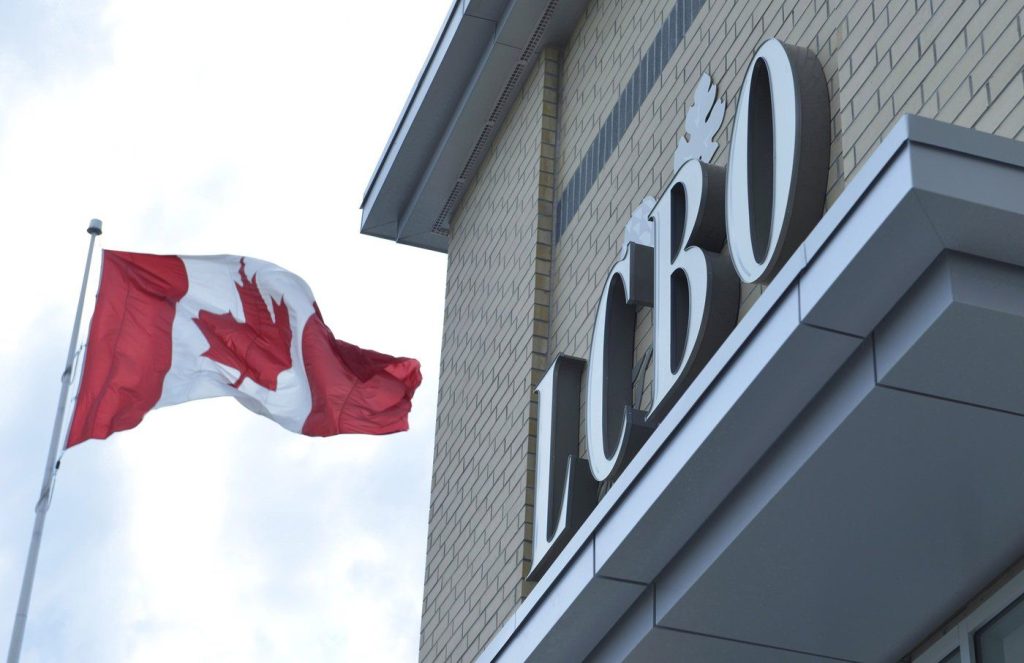Canadian alcohol producers are raising a toast to recent decisions by multiple provinces to remove U.S. alcoholic beverages from liquor store shelves. This bold move is seen as both a boost for homegrown businesses and a strategic countermeasure against new American tariffs.
“There’s no doubt this is a huge opportunity—not just for Canadian producers, but for national pride. It’s about supporting local jobs and our manufacturing industry,” said Bromlyn Bethune, president of Toronto-based Steam Whistle Brewing.
Her remarks follow Ontario Premier Doug Ford’s announcement on Sunday, declaring that Ontario will pull nearly $1 billion worth of U.S. wine, beer, spirits, and seltzers from the LCBO. Over 3,600 American products from 35 states will disappear from store shelves starting Tuesday, aligning with the implementation of new U.S. tariffs on Canadian goods imposed by President Donald Trump.
“There’s never been a better time to choose an amazing Ontario-made or Canadian-made product,” Ford said.
Newfoundland and Labrador, Nova Scotia, British Columbia, and Quebec swiftly followed suit over the weekend, turning alcohol into a central battleground in the escalating trade standoff.
The Canadian alcohol industry is rallying behind this decision, calling it a necessary counterstrike after Trump signed an executive order slapping 25% tariffs on Canadian goods, effective Tuesday. While Canadian energy products received a slightly lower 10% duty, the broader economic impact is expected to be significant.
Trump has framed these tariffs as a response to security concerns at the U.S. border, particularly the flow of fentanyl. However, U.S. Customs and Border Protection data shows that less than 1% of all fentanyl seizures come from the northern border.
In response, Prime Minister Justin Trudeau announced Canada’s own countermeasures on Saturday night. Canada will target $30 billion in U.S. goods starting Tuesday, with another $125 billion in tariffs to follow within three weeks. The list of impacted goods includes a wide range of American alcohol products, such as:
✅ Beer made from malt
✅ Wines produced with fresh grapes
✅ Vermouth, whiskies, tequilas, vodkas, gins, and rums
While the move is expected to hit U.S. alcohol exports hard, Canadian alcohol producers acknowledge that they, too, may feel some indirect consequences.
“Mr. Trump can’t hurt the Canadian wine industry in the same way Canada can hurt the U.S. wine industry,” said Michelle Wasylyshen, president and CEO of Ontario Craft Wineries.
Canada is the largest international market for American wine, while the U.S. imports very little Canadian wine in return—a trade imbalance that Wasylyshen believes works in Canada’s favor.
Yet, there are concerns about supply chain disruptions. Bill Redelmeier, owner of Southbrook Vineyards in Niagara-on-the-Lake, Ont., pointed out that while many Canadian alcohol producers don’t rely on the U.S. market, they do rely on American imports for packaging.
“Bottles are mostly imported, and a large portion come from the U.S. The last major Canadian bottle maker shut down just before COVID, so we’ll have to see how this plays out,” he said.
This isn’t the first time alcohol has been used as a pressure point in Canada-U.S. trade disputes. During Trump’s previous presidency, he imposed 25% tariffs on Canadian steel and 10% on aluminum. Canada hit back with 10% tariffs on U.S. whiskey and bourbon, a move that had a lasting impact on American distillers.
Wasylyshen is optimistic that a similar tactic will once again push Canadians toward supporting homegrown brands.
“It’s a stressful time for many businesses, but for us, it’s an opportunity. We’re looking forward to seeing more Canadians choose local,” she said.
For some in the industry, the timing couldn’t be better. The winter months are traditionally slow for beer sales, with many consumers participating in Dry January.
“This means our part-time packaging team and brewers are going to be busier than usual in February,” Bethune noted.
If the trade battle drags on and Canadians make buying local a long-term habit, Steam Whistle is prepared.
“We’ve got capacity, we’ve got the people, and we’re ready to ramp up production to fill retailer shelves,” she said. “This could be a game-changer.”

